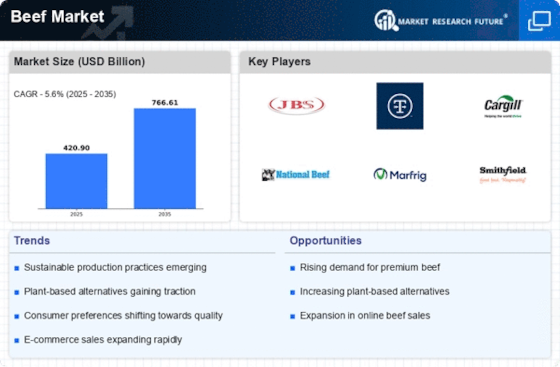Market Trends
Key Emerging Trends in the Beef Market
The beef market is a dynamic and complex sector that is influenced by a multitude of factors, reflecting the intricate interplay between supply and demand. One of the key drivers of market dynamics in the beef industry is the global demand for meat consumption. As economies develop and disposable incomes rise, there is a corresponding increase in the demand for protein-rich foods, with beef being a significant contributor.
Supply-side dynamics in the beef market are heavily influenced by factors such as livestock production practices, weather conditions, and input costs. Cattle ranching plays a pivotal role in determining the availability of beef in the market. Adverse weather conditions, such as droughts or extreme temperatures, can impact the quality and quantity of cattle available for slaughter, directly affecting beef production. Additionally, fluctuations in the cost of feed and other inputs can influence the profitability of cattle farming, thereby affecting the overall supply of beef.
Trade policies and geopolitical factors also exert a considerable impact on the beef market. International trade agreements, tariffs, and import/export regulations can shape the flow of beef across borders. For instance, changes in trade agreements or the imposition of tariffs on beef imports can disrupt established supply chains and alter market dynamics. Moreover, disease outbreaks in cattle populations can have far-reaching consequences, leading to trade restrictions and affecting the global availability of beef.
Consumer preferences and dietary trends contribute significantly to the demand side of the beef market. Shifts in consumer behavior towards healthier or more sustainable eating habits can influence the demand for specific types of beef products, such as grass-fed or organic beef. Additionally, cultural and regional preferences play a role in shaping the demand for different cuts of beef and preparation methods.
The role of technology in the beef industry cannot be overlooked when analyzing market dynamics. Advancements in farming practices, such as precision agriculture and genetic engineering, contribute to increased efficiency and productivity in cattle farming. These technological innovations can impact the cost of production and, in turn, influence the pricing and availability of beef in the market.
Environmental and sustainability concerns are becoming increasingly significant factors in shaping market dynamics within the beef industry. Consumers are becoming more conscious of the environmental impact of meat production, leading to a growing demand for sustainable and ethically sourced beef. This shift in consumer preferences is prompting producers and stakeholders in the beef industry to adopt more sustainable practices, such as reducing greenhouse gas emissions and minimizing resource use.


















Leave a Comment